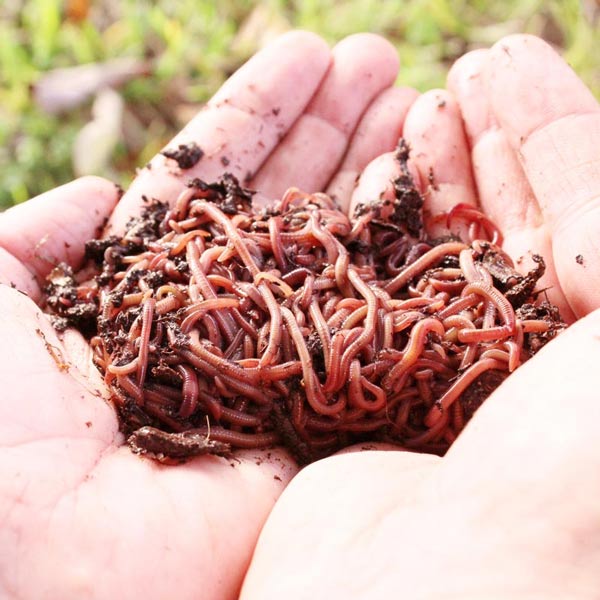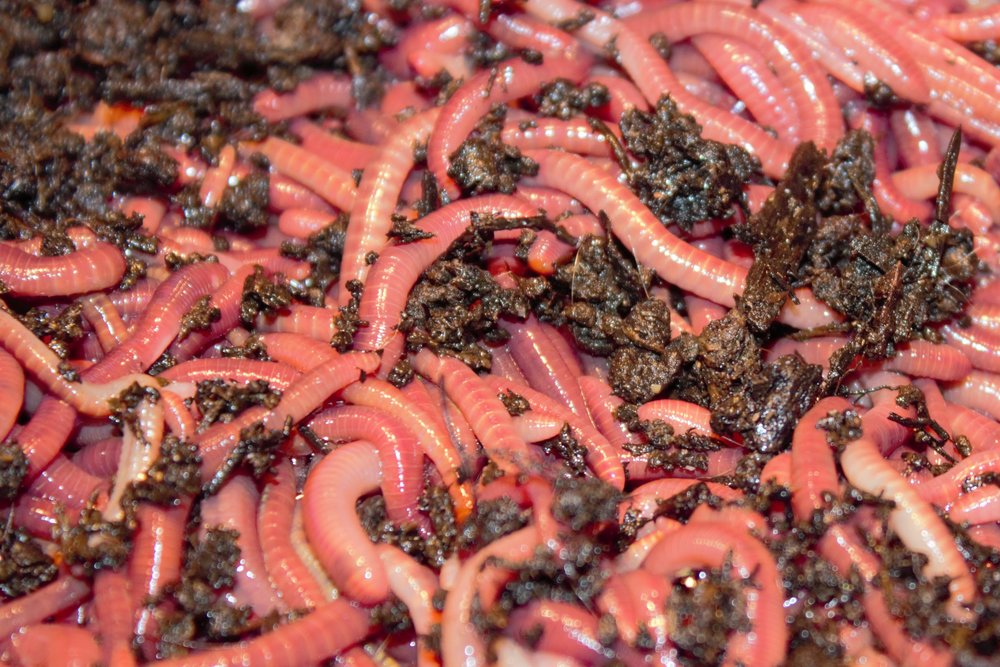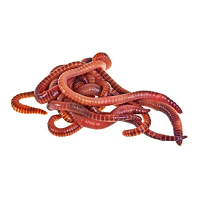Nutrient-packed red worms: The best choice for composting
Nutrient-packed red worms: The best choice for composting
Blog Article
Why Red Wigglers Are Important for Organic Farming
Red wigglers play a crucial duty in chemical-free farming, largely with their special ability to disintegrate natural products and improve dirt health. Their task not only enriches the dirt with vital nutrients but likewise promotes a growing ecosystem vital for lasting farming. In addition, the physical processes they take part in, such as aeration and moisture retention, contribute considerably to boosted plant returns. The level of their impact on farming methods and dirt biology raises fascinating inquiries concerning the future of natural farming. red wigglers. What effects might this have for farming methods?
Duty of Red Wigglers in Dirt Health

Additionally, red wigglers boost soil framework by creating channels as they burrow. These networks boost aeration and water infiltration, advertising a healthier root environment. Their activity also helps in keeping optimal dampness degrees, which is essential for healthy plant development.

Advantages of Worm Spreadings
Worm spreadings, the nutrient-rich excrement produced by red wigglers, serve as an effective amendment for organic farming. These spreadings are packed with necessary nutrients such as nitrogen, phosphorus, and potassium, which are vital for plant development. Unlike synthetic plant foods, worm spreadings release nutrients gradually, providing a consistent supply gradually and minimizing the risk of nutrient leaching and runoff.
Furthermore, worm spreadings boost dirt structure and aeration, advertising much healthier origin systems. Their high organic issue content boosts dampness retention, allowing plants to better stand up to dry spell problems. Additionally, worm castings include beneficial microorganisms that support plant health by reducing microorganisms and enhancing vitamins and mineral uptake.
The application of worm castings can cause increased crop yields and improved high quality of produce, making them an invaluable resource for natural farmers. Their usage additionally straightens with sustainable farming practices, contributing to dirt fertility without the adverse ecological impacts linked with chemical plant foods. In see this general, the incorporation of worm spreadings into agricultural techniques promotes an extra resistant and efficient environment, emphasizing the importance of red wigglers in natural farming systems.

Enhancing Nutrient Cycling
(red wigglers for composting)Nutrition cycling is an important process in natural farming, and the integration of red wigglers plays a crucial duty in boosting this cycle. As red wigglers consume decaying organic issue, they excrete nutrient-rich castings, which are bursting with helpful microbes.
Additionally, red wigglers help to speed up the mineralization of nutrients, transforming them from inert forms right into bioavailable kinds that plants can take in. This procedure is vital for preserving dirt fertility and promoting healthy crop growth. The existence of red wigglers likewise urges a varied dirt ecosystem, promoting an equilibrium of nutrients that supports various plant types.
Improving Dirt Framework
The enhancement of soil structure is vital for cultivating a healthy agricultural environment, and the task of red wigglers significantly contributes to this enhancement. These earthworms play a necessary function in aerating the dirt and developing a network of networks that facilitate water seepage and origin infiltration. As they delve through the soil, red wigglers separate compacted layers, permitting far better oxygen exchange and advertising microbial activity.
Moreover, the natural matter produced from their waste, understood as vermicast, improves dirt gathering. This procedure produces steady clumps of dirt bits, enhancing dirt porosity and lowering disintegration (red wigglers). The visibility of red wigglers additionally urges the growth of beneficial fungal networks, which are important for nutrient uptake by plants
Encouraging Sustainable Practices
Integrating red wigglers into natural farming practices not just boosts dirt health and wellness however also advertises lasting farming approaches. These earthworms play a crucial duty in nutrition cycling, transforming organic waste right into beneficial garden compost that enhances the soil. By utilizing red wigglers, farmers can effectively lower dependence on artificial fertilizers, consequently reducing chemical runoff and its detrimental results on ecological communities.
In addition, the consolidation of red wigglers encourages the practice of reusing natural products, such as cooking area scraps and ranch waste. This waste reduction approach not only decreases disposal expenses but likewise fosters a closed-loop system where nutrients are constantly returned to the soil (red wigglers). Such practices are vital in alleviating climate modification, as they boost carbon sequestration and lower greenhouse gas discharges
Moreover, red wigglers improve water retention in the dirt, which is important in times of dry spell. Their burrowing tasks develop channels that enable water to penetrate much deeper into the ground, thus advertising efficient water usage. Ultimately, incorporating red wigglers into natural farming not only sustains biodiversity yet also lines up with the concepts of lasting agriculture, using a holistic strategy to food production.
Verdict
In final thought, red wigglers play a critical role in organic farming by substantially boosting dirt wellness and fertility. Therefore, the assimilation of red wigglers right into farming techniques is essential for advertising sustainability and enhancing general soil quality.
Report this page